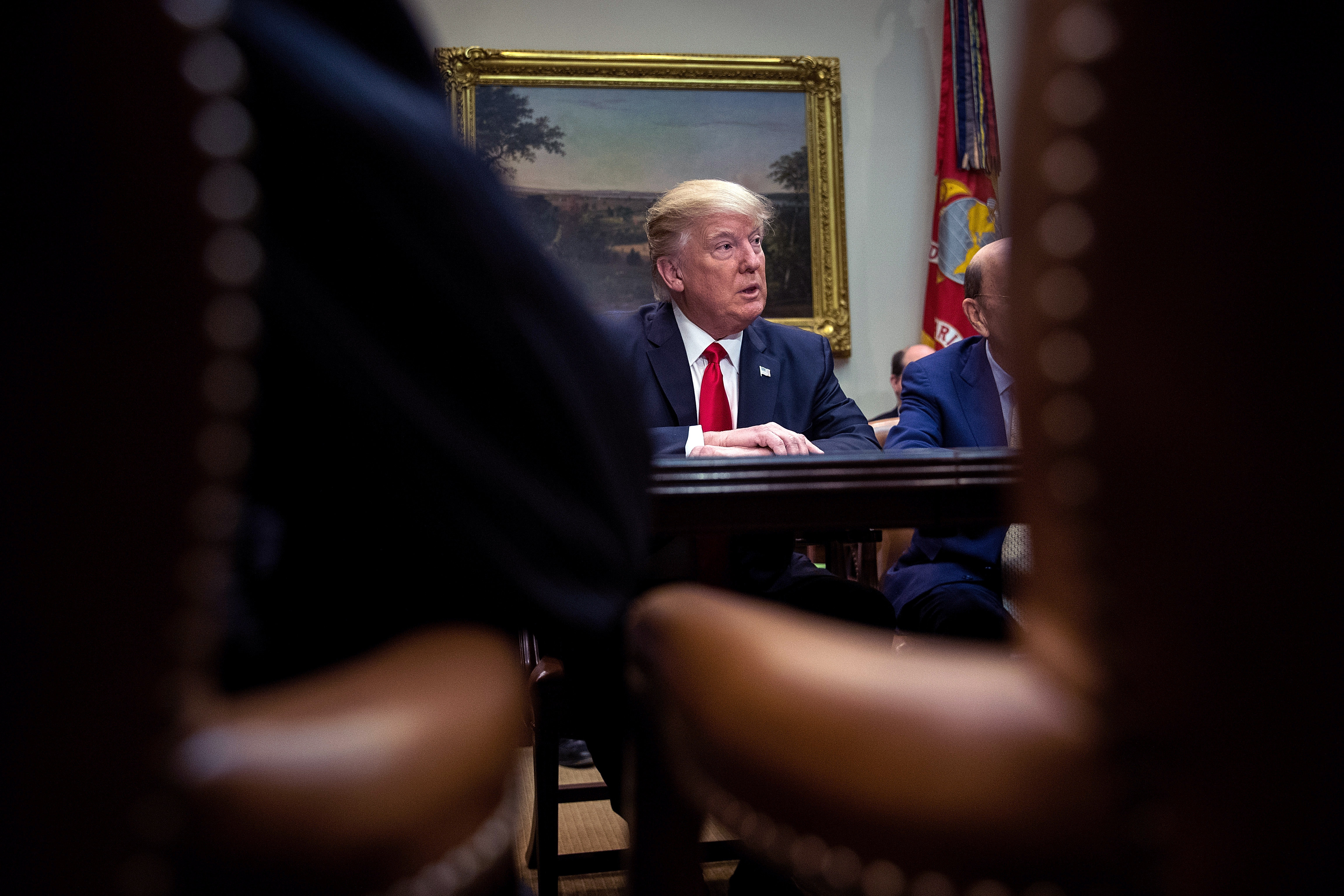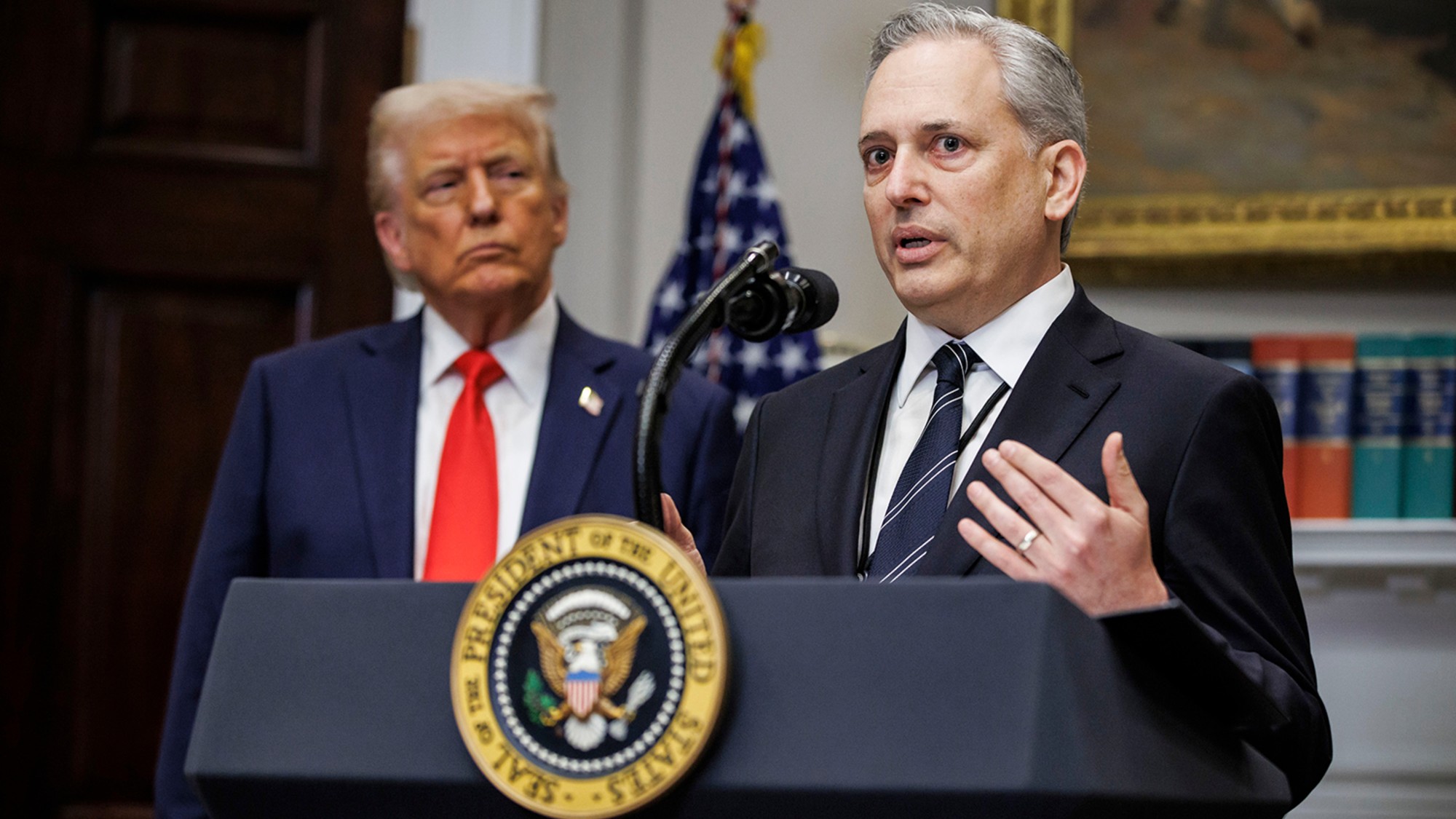What's next for Trump's travel ban?
The controversial executive order suffered a huge setback, but it's far from dead


On Thursday, a unanimous bipartisan three-judge panel on the 9th Circuit Court of Appeals delivered a stinging rebuke to President Trump's travel ban on immigrants from seven Muslim-majority countries. This court's holding does not guarantee that the travel ban will ultimately be ruled unconstitutional. But it does suggest that the case against the constitutionality of the order is very credible, and that this challenge will now almost certainly get its day in front of the Supreme Court.
The Trump administration was hoping that a ruling by District Court Judge James Robart, which prevented Trump's order from being implemented, would be stayed. That would have allowed the travel ban to go back into effect. But all three 9th Circuit judges rejected that request, including Judge Richard R. Clifton, who was appointed by George W. Bush. The court found that "the Government has not shown a likelihood of success on the merits of its appeal, nor has it shown that failure to enter a stay would cause irreparable injury."
The conclusion that the government would not suffer "irreparable injury" if the ban was temporarily suspended seems obvious. Indeed, the balance of harms inflicted by Trump's ban clearly falls most heavily on the people who might potentially have their lives ruined by an order that is ultimately determined to be illegal.
The Week
Escape your echo chamber. Get the facts behind the news, plus analysis from multiple perspectives.

Sign up for The Week's Free Newsletters
From our morning news briefing to a weekly Good News Newsletter, get the best of The Week delivered directly to your inbox.
From our morning news briefing to a weekly Good News Newsletter, get the best of The Week delivered directly to your inbox.
So, now what happens?
Just because the challenge to Trump's ban will be allowed to go forward does not mean that it will win. This particular lawsuit involves two areas — immigration and national security — where the courts tend to be very deferential to the executive branch. Could this be an exception to the general rule?
It's possible. There are several plausible arguments that Trump's order violates both the Constitution and the statute that authorized Trump to issue the order. The administration's amateurish failure to follow typical procedures is likely to make the courts less likely to apply their usual deference.
Another indication that the courts will take the legal challenges to the order very seriously is the 9th Circuit opinion that accompanied the ruling. As the court observed: "The States have offered evidence of numerous statements by the president about his intent to implement a 'Muslim ban' as well as evidence they claim suggests that the Executive Order was intended to be that ban."
A free daily email with the biggest news stories of the day – and the best features from TheWeek.com
The challengers of the ban will have to prove that the neutral language of the executive order conceals discriminatory intent, which can be very difficult to prove in court even in many cases where such intent is likely. In this case, however, the challengers have an advantage: the words spoken by Trump and his advisers on the campaign trail. Indeed, Trump has made little effort to hide the purpose of the ban.
As Washington state Solicitor General Noah Purcell pointed out in Tuesday's oral arguments, it is unusual to find this much evidence of discriminatory intent at this early stage of a trial, and further proceedings are likely to uncover more.
The Trump administration argued that such executive orders fall solely within the executive branch and should not be subject to judicial review. The 9th Circuit panel forcefully rejected that claim, saying: "There is no precedent to support this claimed unreviewability, which runs contrary to the fundamental structure of our constitutional democracy."
There are several ways the Trump administration can respond: It can appeal to have the case heard by a panel of 11 9th Circuit judges. It can also appeal directly to the Supreme Court. Both of these avenues, however, are likely to be dead ends. The 9th Circuit is extremely unlikely to review a well-reasoned and unanimous opinion, and the eight-member Supreme Court is also highly likely (although not guaranteed) to let the case go forward.
This does not mean the challenge to the travel ban will ultimately succeed. But it is at least an encouraging sign that the courts will act to curtail this overreach by the Trump administration.
Scott Lemieux is a professor of political science at the College of Saint Rose in Albany, N.Y., with a focus on the Supreme Court and constitutional law. He is a frequent contributor to the American Prospect and blogs for Lawyers, Guns and Money.
-
 Trump vs. states: Who gets to regulate AI?
Trump vs. states: Who gets to regulate AI?Feature Trump launched a task force to challenge state laws on artificial intelligence, but regulation of the technology is under unclear jurisdiction
-
 Decking the halls
Decking the hallsFeature Americans’ love of holiday decorations has turned Christmas from a humble affair to a sparkly spectacle.
-
 Whiskey tariffs cause major problems for American distillers
Whiskey tariffs cause major problems for American distillersIn the Spotlight Jim Beam is the latest brand to feel the pain
-
 Has Zohran Mamdani shown the Democrats how to win again?
Has Zohran Mamdani shown the Democrats how to win again?Today’s Big Question New York City mayoral election touted as victory for left-wing populists but moderate centrist wins elsewhere present more complex path for Democratic Party
-
 Millions turn out for anti-Trump ‘No Kings’ rallies
Millions turn out for anti-Trump ‘No Kings’ ralliesSpeed Read An estimated 7 million people participated, 2 million more than at the first ‘No Kings’ protest in June
-
 Ghislaine Maxwell: angling for a Trump pardon
Ghislaine Maxwell: angling for a Trump pardonTalking Point Convicted sex trafficker's testimony could shed new light on president's links to Jeffrey Epstein
-
 The last words and final moments of 40 presidents
The last words and final moments of 40 presidentsThe Explainer Some are eloquent quotes worthy of the holders of the highest office in the nation, and others... aren't
-
 The JFK files: the truth at last?
The JFK files: the truth at last?In The Spotlight More than 64,000 previously classified documents relating the 1963 assassination of John F. Kennedy have been released by the Trump administration
-
 'Seriously, not literally': how should the world take Donald Trump?
'Seriously, not literally': how should the world take Donald Trump?Today's big question White House rhetoric and reality look likely to become increasingly blurred
-
 Will Trump's 'madman' strategy pay off?
Will Trump's 'madman' strategy pay off?Today's Big Question Incoming US president likes to seem unpredictable but, this time round, world leaders could be wise to his playbook
-
 Democrats vs. Republicans: who do the billionaires back?
Democrats vs. Republicans: who do the billionaires back?The Explainer Younger tech titans join 'boys' club throwing money and support' behind President Trump, while older plutocrats quietly rebuke new administration
